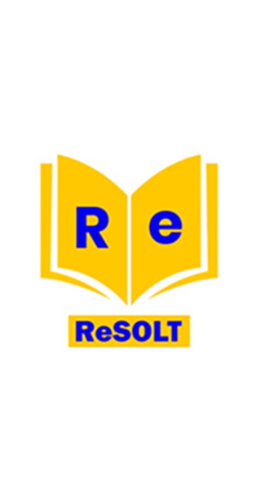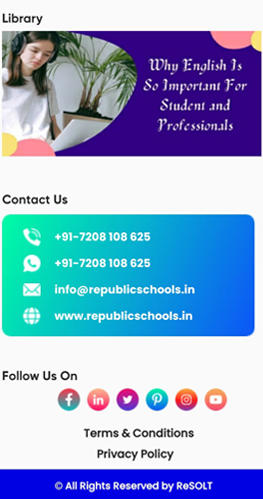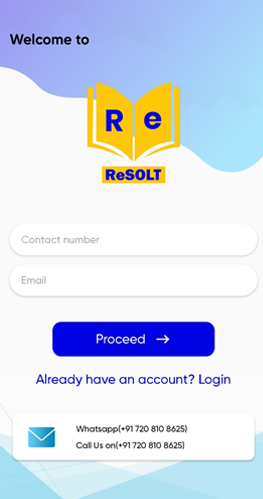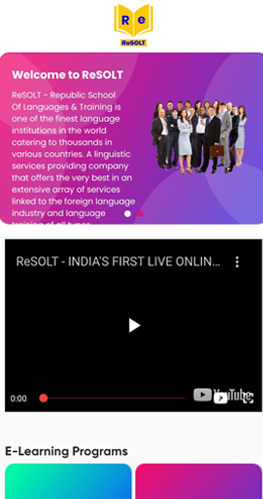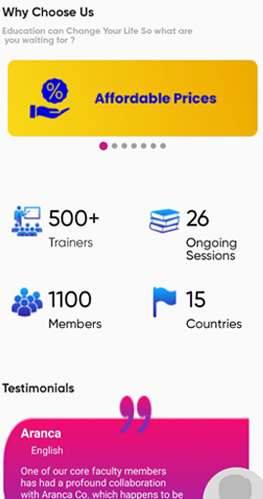Learning Arabic Language can be an exciting and rewarding journey. With its rich history, beautiful script, and significance in the Islamic world, Arabic opens doors to new cultures, literature, and opportunities. However, starting with this complex and unique language can be daunting. Arabic classes or Arabic courses are some of the best resources to learn Arabic. This guide will help beginners navigate their way through the initial stages of learning Arabic, providing tips, resources, and strategies to ensure a smooth and successful journey.
Understanding the Arabic Language
Before diving into the study process, it’s essential to understand a few fundamental aspects of Arabic. Arabic is a Semitic language, which means it belongs to the same language family as Hebrew and Amharic. It is written from right to left, which might be unfamiliar for those used to Latin-based languages. There are two primary forms of Arabic: Modern Standard Arabic (MSA) and dialects (also known as colloquial Arabic). MSA is used in formal writing, media, and official communications across the Arab world, while dialects vary from region to region and are used in everyday conversation.
Step 1: Learn the Arabic Alphabet
The first step in learning Arabic language is mastering the Arabic alphabet. Unlike the Latin alphabet, Arabic has 28 letters, and the script is cursive, meaning the letters often change shape depending on their position in a word (beginning, middle, or end). Here are a few tips to help you learn the Arabic alphabet:
- Start with the basics: Familiarize yourself with the individual letters and their sounds. Arabic has some sounds that don’t exist in English, so take your time practicing these new pronunciations.
- Practice writing: Writing each letter repeatedly is one of the best ways to commit it to memory. Use lined paper to practice writing the letters in different positions within words.
- Use flashcards: Create flashcards with the Arabic letter on one side and the corresponding sound on the other. This can be an effective way to test yourself and reinforce your memory.
- Learn the short vowels: Arabic has three short vowels (a, i, u), which are not represented by letters but by small marks above or below the letters. These marks are essential for proper pronunciation and understanding.
With the right Arabic classes in Mumbai or Arabic language courses in Mumbai, you can easily learn to write and speak Arabic language.
Read also: 7 Ideas to Improve Your French Writing And Speaking Skills
Step 2: Build a Strong Vocabulary Foundation
Once you have a good grasp of the alphabet, it’s time to start building your vocabulary. Begin with the most common and useful words that will help you in everyday conversation. Here’s how to do it:
- Learn high-frequency words: Start with words that you are likely to use regularly, such as greetings, common objects, and verbs. This will give you a practical vocabulary base that you can use right away.
- Use spaced repetition: To retain new vocabulary, use a spaced repetition system (SRS). This method involves reviewing words at increasing intervals, which helps transfer information from short-term to long-term memory.
- Engage with the language daily: Incorporate Arabic language into your daily life by labeling household items, practicing with language learning apps, or listening to Arabic music or podcasts.
- Practice contextually: Learn words in context rather than in isolation. For example, instead of just memorizing the word for “book” (kitab), learn it in a sentence like “This is a book” (hadha kitab). This helps you understand how the word functions within a sentence.
Step 3: Develop Listening and Speaking Skills
To become proficient in Arabic language, it’s crucial to develop your listening and speaking skills. Here’s how you can improve:
- Listen to native speakers: Exposure to native speakers will help you get used to the rhythm, intonation, and pronunciation of the language. Watch Arabic TV shows, listen to Arabic podcasts, or engage with Arabic speakers online.
- Practice speaking: Speaking is an active skill that requires practice. Start by repeating words and sentences aloud, then gradually move to having conversations, even if it’s just with yourself. Language exchange partners or tutors can be invaluable for practicing speaking.
Step 4: Focus on Grammar and Sentence Structure
Arabic language grammar can be challenging, but it’s essential for constructing correct sentences. Here are a few strategies to tackle Arabic grammar:
- Start with basic sentence structure: Understand how sentences are formed in Arabic, focusing on the subject-verb-object order, which is the most common structure.
- Learn verb conjugations: Arabic verbs are conjugated based on tense, person, and gender. Start with present tense conjugations before moving on to past and future tenses.
- Understand noun-adjective agreement: In Arabic, adjectives must agree with the nouns they describe in gender, number, and case. Practice this by writing sentences with matching nouns and adjectives.
- Use grammar resources: Invest in a good grammar book or use online resources like Arabic grammar websites and YouTube tutorials to study and practice.
Step 5: Immerse Yourself in the Culture
Language learning is more than just memorizing words and rules; it’s also about understanding the culture behind the language. Immerse yourself in Arabic culture by exploring its literature, music, cuisine, and traditions. This not only makes learning more enjoyable but also provides context that enhances your understanding of the language.
Conclusion
Learning Arabic language as a beginner may seem overwhelming at first, but with the right approach and resources, it’s entirely achievable. Start with the basics, gradually build your vocabulary and grammar skills, and immerse yourself in the language and culture. Remember, consistency is key. Dedicate time each day to practice, and over time, you’ll find yourself growing more confident and proficient in Arabic. Whether you’re learning for travel, work, or personal enrichment, mastering Arabic will open up a world of possibilities. So enrol in the best Arabic institute in Mumbai to start your learning.
Follow us to get more courses videos: https://www.youtube.com/c/resolt














